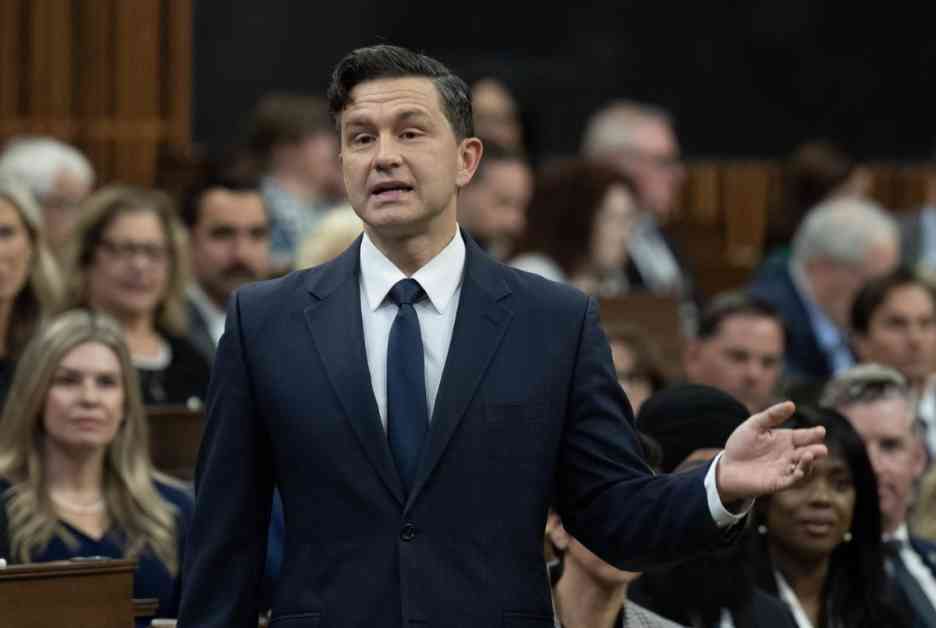Conservative Leader Pierre Poilievre made a bold move on Tuesday by urging Members of Parliament to defeat the Liberal government. However, the debate on his non-confidence motion quickly shifted to focus on the policies of the Conservative party instead of the government itself.
Poilievre wasted no time in introducing the non-confidence motion at the start of the House of Commons sitting, delivering a passionate speech outlining his vision for Canada under a Conservative government. He emphasized his plan to fulfill the promise of Canada by ensuring a strong economy that provides affordable essentials like food, gas, and housing, as well as safe communities that offer endless opportunities for all.
While recent polls have shown consistent support for the Conservatives, translating this into a majority government in the next election remains to be seen. Poilievre promised to lower taxes, eliminate carbon pricing, and focus on green projects to combat climate change while reducing government debt. He also pledged to implement a dollar-for-dollar law to cap government spending and cut down on bureaucracy and unnecessary expenses.
However, the lack of specifics regarding where these cuts would be made raised concerns among opposition parties. NDP leader Jagmeet Singh questioned Poilievre about the fate of the dental-care program introduced by the Liberals in collaboration with the NDP, but did not receive a clear answer. Singh emphasized his party’s stance against Conservative cuts and the non-confidence motion.
The debate on the motion concluded with a vote scheduled for the following day. Both the NDP and the Bloc Québécois expressed their opposition to the motion, citing their lack of support for the Conservatives. If either party votes against the motion, the Liberal government will survive this initial test following the end of their supply-and-confidence deal with the NDP.
The Bloc Québécois preferred to negotiate with the Liberals in the current minority Parliament rather than risk a potential election that could lead to Poilievre becoming prime minister. They highlighted the need for specific plans to address Quebec’s unique challenges, while also advocating for increased pension payments for seniors under 75.
The debate in the House underscored the contrasting visions for Canada presented by the Conservatives and the government. Liberal House leader Karina Gould emphasized that the focus was on questioning the confidence in the Conservative Party rather than supporting the government’s agenda. Prime Minister Trudeau, who was absent from the debate due to his attendance at the United Nations General Assembly, criticized the Conservative focus on power and cuts, highlighting his commitment to investing in Canadians.
As the political landscape continues to evolve, the Conservatives have an opportunity to introduce another non-confidence motion on Thursday. With several opposition days allocated this fall, the political dynamics in Canada are set to undergo further scrutiny and debate. The outcome of these motions will shape the future direction of the country as parties vie for support and demonstrate their vision for Canada’s prosperity and well-being.








